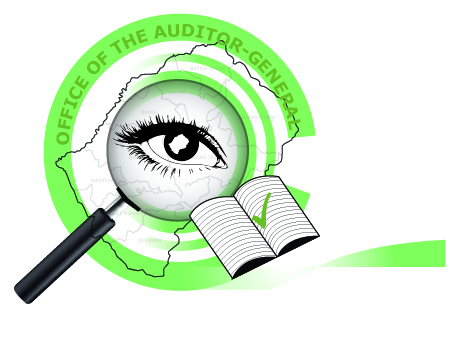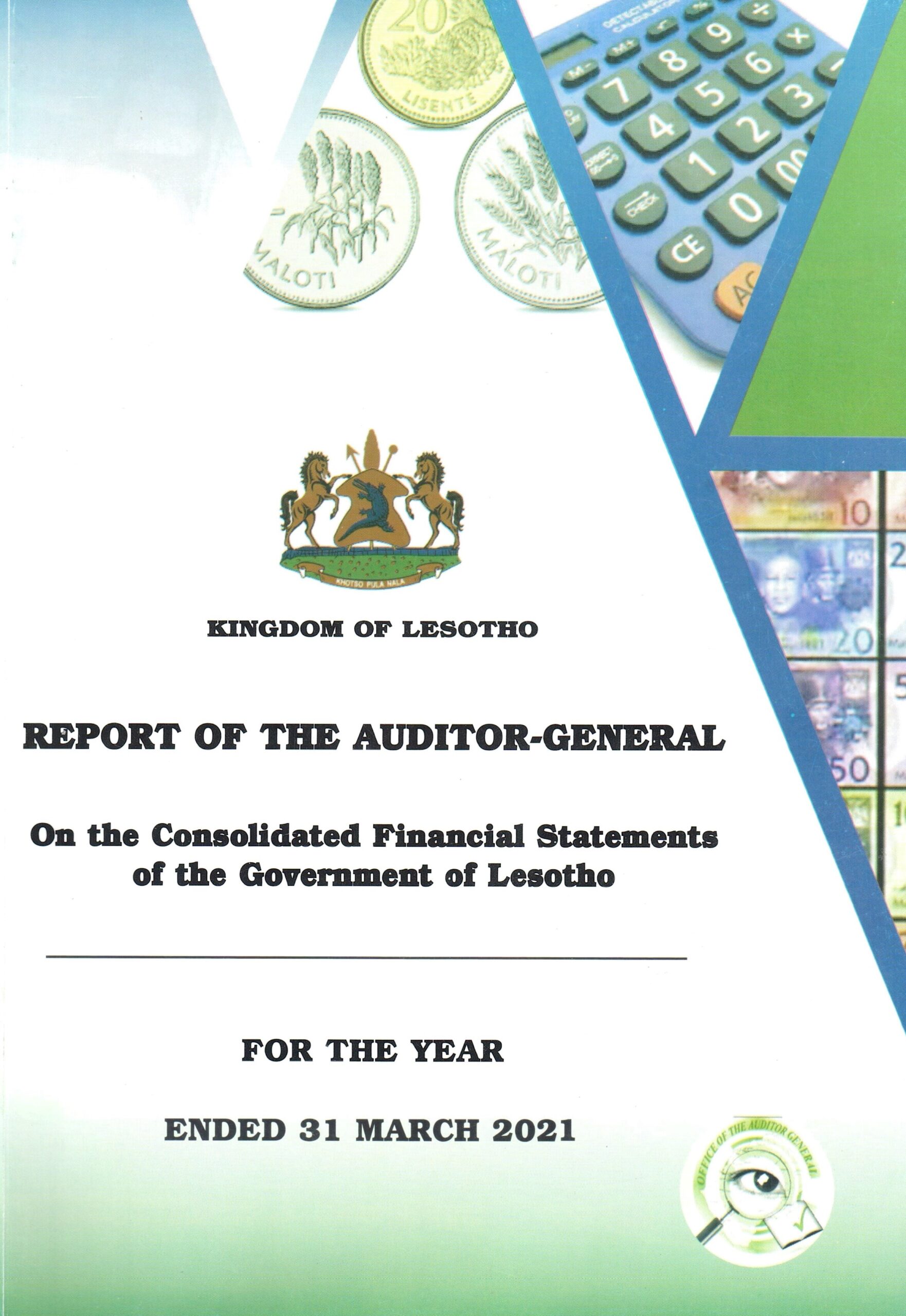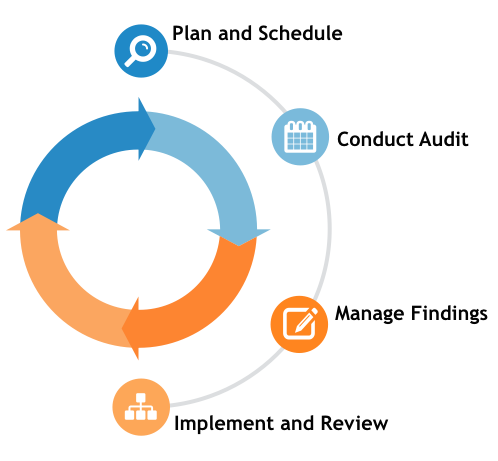
Establishment
The office of the Auditor-General was established in 1963 and headed by a Director of Audit. Its original name was the Basutoland Audit Office. It was changed to its present name in 1970.

Governance and Accountability
Continuous audit ensures that the Office is proactive, preventive and a deterrent to fraud & corruption, wastage and abuse of public resources.

Reports
Our reports are submitted to Parliament and the relevant bodies representing the people of Lesotho.

Audit Cycle
| 1 | Who we are |
| The Office of the Auditor-General is the supreme audit institution in Lesotho and was established under section 117 of the Constitution of Lesotho. The section mandates the Office to undertake a full audit of all accounts relating to the consolidated fund of Lesotho, other accounts and public stores to provide an overall opinion. The mandate was translated in the Audit Act 2016 which stipulates the types of audits that the Auditor-General undertakes to fulfil this mandate as follows: Financial, compliance, and performance audits. | |
| 2 | Who appoints the Auditor-General? |
| Pursuant to section 142(1) of the constitution, The Auditor-General is appointed by the King, acting in accordance with the advice of the Prime Minister. | |
| 3 | Who does the Auditor-General Report to? |
| The Auditor-General reports to the Parliament but the Audit Report is tabled by the Minister of Finance and Development Planning. | |
| 4 | What entities does the OAG audit? |
| The Office of the Auditor–General audits all the Government Ministries, Departments, and Agencies where the Government has shares. | |
| 5 | Who can request an audit? |
| Chief Accounting Officers or Chief Executive Officers | |
| 6 | What kind of Audits do you carry out? |
| The Office of the Auditor-General carries out Financial, Compliance, and Performance Audits although the Audit Act 2016 section 7(2) provides for a variety of Audits such as Forensic and IT, however, requires development capacity in this area. | |
| 7 | How confidential is the information provided by auditees/received by auditors? |
| It is confidential until the audit report is tabled in Parliament for public consumption | |
| 8 | Why does OAG take time to issue a report? /What is the reporting timeframe for OAG? |
| The Financial year closes in March every year. The PFMA Act affords the Accountant General 5 months to consolidate financial statements and then submit them to the Auditor-General who has 90 days to complete the audit of the consolidated financial statements and issue an audit report. The Audit Report is submitted to the Minister of Finance and Development Planning who is supposed to table it in Parliament within 7 days. | |
| 9 | When is an audit report published? |
| After the audit report is tabled in Parliament by the Minister of Finance, it is therefore deemed a public document. | |
| 10 | Who gets copies of audit reports? |
| The audited entities, parliamentarians, media, and the Public at large. | |
| 11 | What action does the Auditor-General take with audit recommendations? |
| The Auditor-General carries out follow-up audits to track the implementation of the recommendations. | |
| 12 | What happens with OAG audit recommendations |
| PAC report and produce recommendations based on the OAG report. Chief Accounting Officers/Executives implement the audit recommendations. | |
| 13 | Is OAG subject to Audit? |
| Section 41 of the Audit Act stipulates that the Minister of Finance shall appoint an independent Auditor to Audit the Financial Statements of the Office of the Auditor-General and any other information relating to the performance of the OAG. | |
| 14 | To what extent is OAG independent from the Executive? |
| Section 4 of the Audit Act 2016 stipulates that the OAG shall accomplish its tasks objectively, be independent in performing duty and exercising its powers, and have administrative autonomy. | |
| 15 | Does OAG have prosecuting powers? |
| Not yet, the Auditor-General has to ask for permission from the Director of Public Prosecution. |

